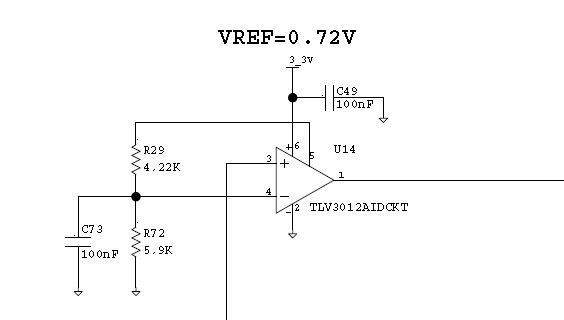Other Parts Discussed in Thread: TLV7031, TLV6703, TLV7011
Hellow,
I am testing the TLV3012 at low temperature (-40C) and i found that the internal voltage reference was decreasing.
At +55C down to -30C the voltage reference stable at 1.25V. (U14-5 at the schema)
At -35C the voltage reference decrease to 900mV and at -40C the voltage reference decrease to 600mV.
Does it OK? Why isn't it stable at -40C?
BR
Doron


